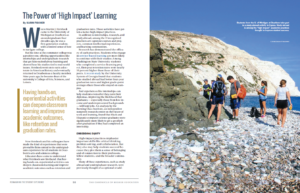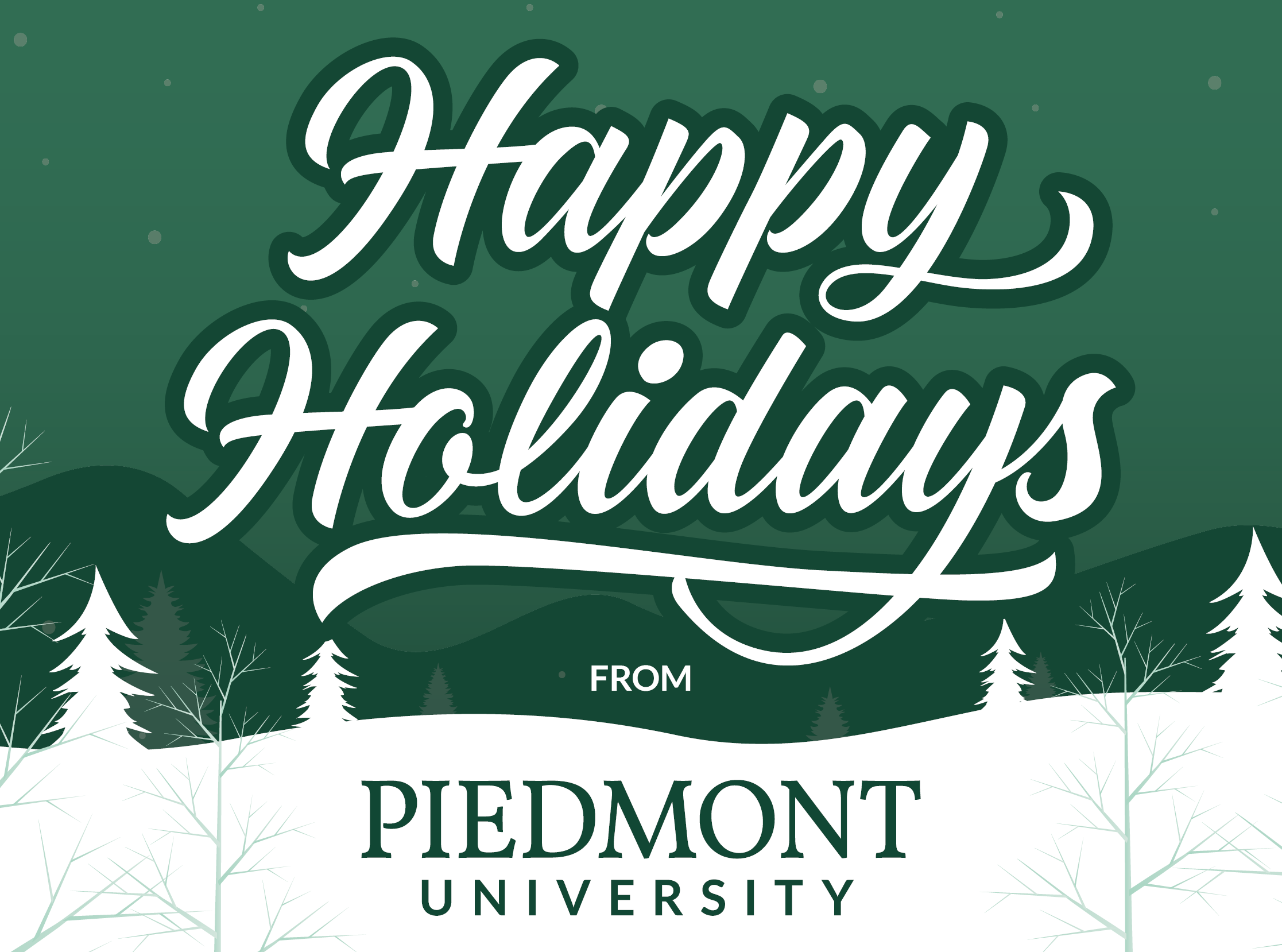Piedmont University’s High-Impact Practices Recognized by The Chronicle of Higher Education

Piedmont University’s work to provide students with hands-on, real-world learning experiences has caught the attention of The Chronicle of Higher Education.
Piedmont is featured in a special publication by The Chronicle titled “Reimagining the Student Experience, How Colleges Can Help Students Connect, Belong, and Engage.” The Chronicle is a national leader in higher education journalism, with more than 2 million digital readers monthly.
The special report is intended as a guide for colleges and universities seeking to help students feel that they belong on campus, make classes more engaging, and foster a deeper sense of community among their students. The Chronicle writes: “Research shows that supportive relationships and meaningful learning experiences are vital to students’ long-term well-being. For low-income, minority, and first-generation college students, who have traditionally had a harder time navigating academe’s hidden curriculum, the obstacles — and the stakes — are particularly high.”
The special report includes a case study of the University of Iowa’s work to provide virtual mental health services, Colorado State University’s student-success program, and the University of Dayton’s virtual campus tours.
Piedmont University is featured in an article titled “The Power of ‘High Impact’ Learning,” for its five-year Quality Enhancement Plan, which kicked off in 2016, that emphasized high-impact learning practices. Examples of Piedmont’s high-impact learning practices include a variety of study-abroad trips, internships, and Piedmont Symposium, an annual showcase of student research and creative inquiry.
Piedmont’s high-impact practices have been shown to have a significant effect on student retention. Freshmen and transfer students in the fall of 2020 who participated in at least one high-impact practice had a first-year retention rate of 79 percent. The retention rate for those who didn’t take part was 68 percent.
The article quotes Dr. Julia Schmitz, an associate professor of biology who led the creation of the QEP:
“One emphasis at Piedmont has been on undergraduate research. A number of professors have built research opportunities into lower-level courses, giving students a chance to work in teams or one on one with a faculty mentor. Each spring, the university holds a student-research symposium in which students apply and are selected to present their findings on projects as varied as study of invertebrates in campus wetlands and the designing of computer games. At the most recent symposium, 10 percent of the more than 400 presenters were first-year students.”
Also in the article, Interim Vice President for Academic Affairs Dr. Steve Nimmo discusses Piedmont’s efforts to provide students with international experiences.
“If we’re going to be in a global society, we need to do this,” Nimmo says.
Piedmont offers a variety of study-abroad trips each year. Destinations available during the 22-23 academic year include Scotland, Frankfurt and Prague, Chile, and France. Learn more about study-abroad opportunities at Travel Study | Piedmont University.
A PDF version of the article is available here.

